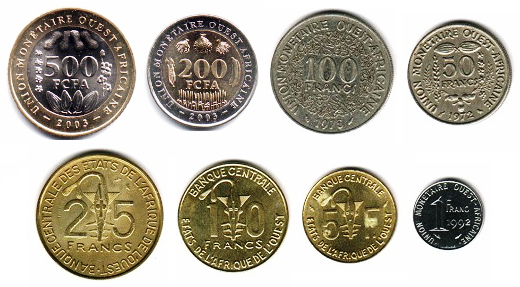 |
| Here's one new outfit - and some cows! Claire and I saw these in the street, and wanted a picture. PC: Claire Dineen |
This weekend I left the city for a bit to go to Joal-Fadiouth with Casi and Delaney, some of my MSID friends. We caught sept-places (pronounced "set-palaass;" run-down stations wagons which you can take between cities for about $2-$4, depending on how far you're traveling. The price you pay for it being so cheap is being crowded in with at least six other passengers) to M'bour, which was pretty central for all of us, then got a taxi to Joal. We arrived very late Friday night at the Hotel Finio, a charming little inn right on the bay.
Joal sits on the Atlantic coast, joined to the village-island of Fadiouth by a pedestrian bridge. No motor vehicles are allowed on Fadiouth, due to the island's unusual covering of shells. "Guards" try to get tourists to pay a fee of about $10 USD to cross the bridge, but in reality there is no fee. Mason, another American student who lives in Joal, showed us around and helped us negotiate fees and taxis like that. Noah, another MSID student, was visiting a relative of his host family in Joal and joined us on Saturday as well.
There were many pigs around, a rare sight here despite the other animals commonly wandering the streets - most Senegalese are Muslim, and thus do not eat pork. Fadiouth, however, is mostly Christian, due to an old Catholic mission which still has a thriving cathedral on the island. I took a lot of pig pictures.
We had a nice lunch out and met Mason's host family, before walking around Joal a bit. We saw the outside of the house of Léopold Sédar Senghor (the first president of Senegal), which is now a museum, but decided to go to the beach instead.
 |
There were lots of crabs around, and some little boys were all too happy to help us catch a few.
|
The next day we had breakfast at the hotel, where this pelican hangs out - we saw him getting his breakfast as well, a bucket of fish. We think the hotel must feed him so he stays around, and I can't blame them, he does add a good ambiance to the place.
We took a walk around the beach, then went out for lunch at the Taverne des Pecheurs (Fishermen's Tavern). The food was fantastic, though a Senegalese quartet came and played music right next to our table. Their style seemed to be "annoying enough that tourists will pay us to go away." We didn't give them anything, being rather sick of playing these kinds of games. I was reminded of Sir Robin's minstrels from Monty Python and the Holy Grail - luckily, we did not have to eat them to get them to stop.
We took the same chain of taxis and sept-places back to our respective cities, for one last week of work and wrapping up. Should have at least one other post up this week, and plenty more photographs on the facebook!







